Incorporate the youth in policymaking
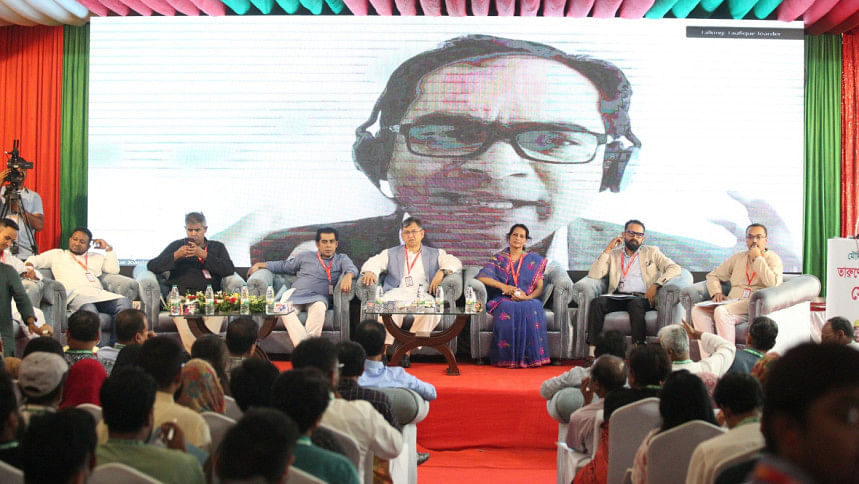
It is necessary to formulate timely and inclusive policies in both the education and health sectors for sustainable development, said experts at a seminar in Khulna on Friday.
The education system needs to be technology-based, market-oriented and equality-based to develop skilled human resources, they said.
Improving quality, expanding services and rebuilding trust in the health sector must get attention, too.
They emphasised adopting realistic and effective policies in the two sectors by ensuring active youth participation.
These points were raised at a seminar titled "Youth's Thoughts on Education, Health and Fundamental Rights" organised by three wings of BNP -- Jubo Dal, Chhatra Dal and Swechhasebak Dal -- at the Khulna Press Club.
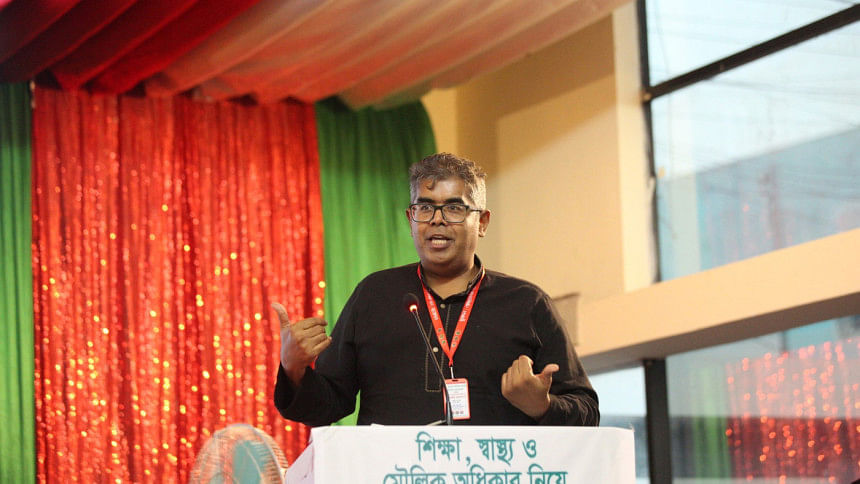
The seminar was organised as part of a month-long programme to actively involve the youth in the policy-making process in light of the 31-point outline announced by BNP Acting Chairman Tarique Rahman.
"To prepare our students to compete in the global job market, we should make third-language education compulsory from the college level. Along with Bengali and English, students will learn any other language of their choice," said Fahim Mashroor, founder of BDJobs.
Nowadays, it is becoming very easy to learn languages through various AI tools.
"So, this initiative can be implemented with the help of technology."
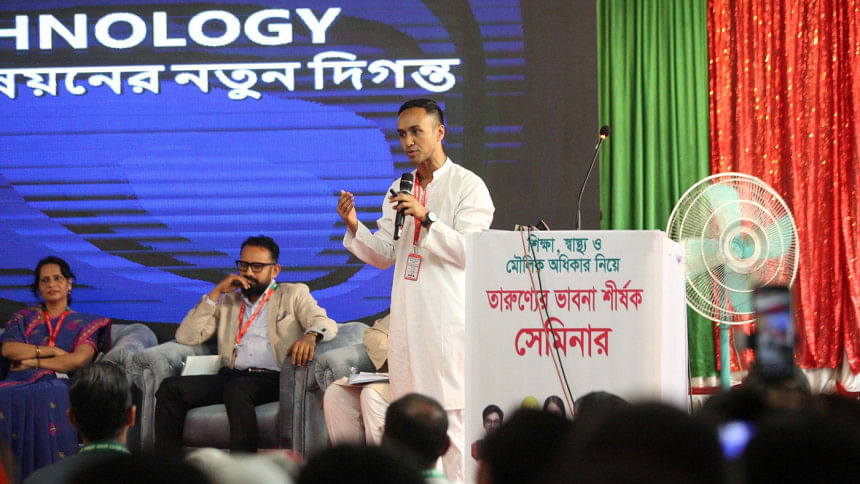
However, it must be included in the national curriculum so that students get the opportunity to acquire this skill institutionally, said Mashroor, also a former president of the Bangladesh Association of Software & Information Services.
There should be opportunities for low-interest educational loans for students who plan to pursue higher education abroad after their HSC exams. In particular, it should be ensured that banks provide such loans on easy terms.
Students can be given the facility to repay the loans in stages after 6-7 years, so that they can continue their studies without facing financial pressure.
On the development of the rural education system, Mashroor said: "Due to the lack of skilled teachers in rural schools and colleges, many talented students cannot achieve the desired results. To address this crisis, government schools should take initiatives to introduce teaching programmes using AI. This will make it possible to address the teacher shortage problem and allow students to move forward at the same pace."
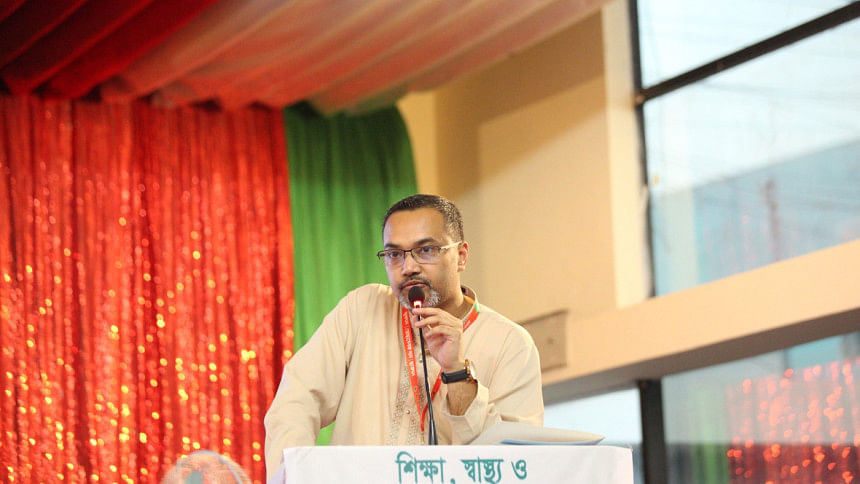
"The future of Bangladesh depends on how our more than 85 million young people are educated," said Shahir Chowdhury, founder and chief executive officer of Shikho, an edtech platform.
"To harness their potential, we do not need a few isolated initiatives but a well-organised, scalable and inclusive framework. The four-tier strategy that we have proposed can be the basis for long-term reforms in the country's education system."
First, high-speed internet must be made affordable for all.
"This is now the oxygen of digital education."
The next step is to build smart classrooms, strike public-private partnerships and deploy data-driven teacher development and youth skills.
Tablets for teachers, smart displays in schools and market-oriented training for students are essential.
"We do not want to build a new education system, but rather to effectively transform the existing system through technology. Now is the time for the right decisions and implementation," he added.
Admissions need to be reformed to ensure equity in medical education and the development of skilled human resources, said Taufique Joarder, associate professor of the National University of Singapore.
In particular, the quota system should be restructured to ensure the participation of local and rural talents.
A system can be introduced like in Thailand under which students who have sat for SSC and HSC from a local school can get a quota in the medical school of that area.
He also said that three separate tracks -- health service, administrative and medical education -- should be identified from the time of recruitment to the BCS (Health) cadre, so that careers can be built according to skills.
At the same time, hospitals should increase beds and equipment as needed to ensure dignified treatment of patients.
In addition, it is possible to develop some specialised medical facilities at low cost in Bangladesh to attract medical tourism, he added.
"Our health system has become largely dependent on foreign countries because patients are unable to trust our own healthcare. As a result, $4 to 5 billion is going out of the country every year. Both healthcare providers and service recipients have become dependent on foreign countries," said Sayem Mohammad, senior consultant at AMZ Hospital.
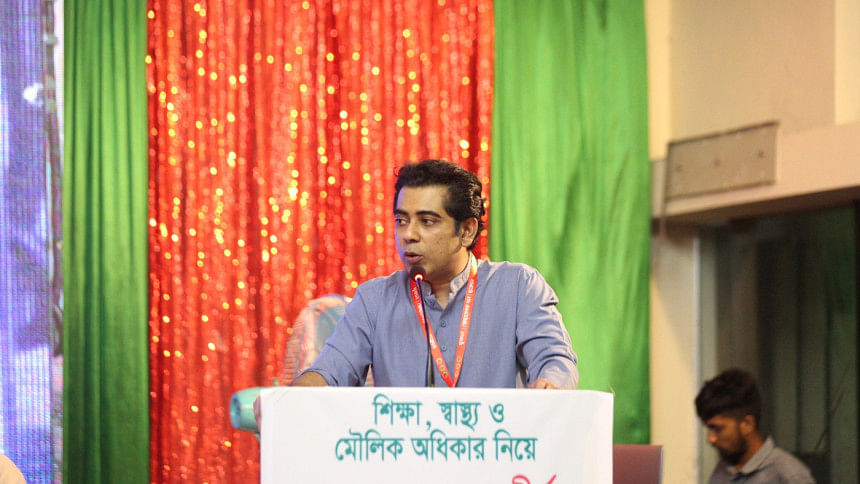
Healthcare needs to be delivered properly and a referral system needs to be introduced, he said, adding that a clear health policy and health education system need to be developed.
Moreover, primary healthcare needs to be strengthened and basic tests and examinations need to be ensured there.
Health insurance coverage needs to be increased and health cards need to be introduced, he said, adding that healthcare laws need to be formulated and enforced.
Specialised medical systems need to be decentralised, Mohammad added.
Speaking as the chief guest, BNP Standing Committee member Salahuddin Ahmed said that BNP's 31-point roadmap for national development is "an epic for Bangladesh's politics".
"Now, it is being expanded."
Under this outline, an ambitious goal of allocating 5 percent of GDP to education and health sectors has been taken, he said.
The responsibility of upholding fundamental rights of citizens lies with the politicians, said Andaleev Rahman Partha, chairman of Bangladesh Jatiya Party.
"Just like you can have good food if you have a good cook, we can enjoy all these fundamental rights if we have good people as politicians," he added.
Mahdi Amin, advisor to the acting chairman of BNP, moderated the programme.
"The main purpose of this event is to involve experts and professionals who are not directly involved with BNP, but can make important contributions to policymaking. We want to create the best policies for the future, especially by empowering and integrating the youth. We want to hear the opinions of the best people in formulating the best policies for the country, so that we can be ready if the people give BNP a chance to form the government."

 For all latest news, follow The Daily Star's Google News channel.
For all latest news, follow The Daily Star's Google News channel. 



Comments